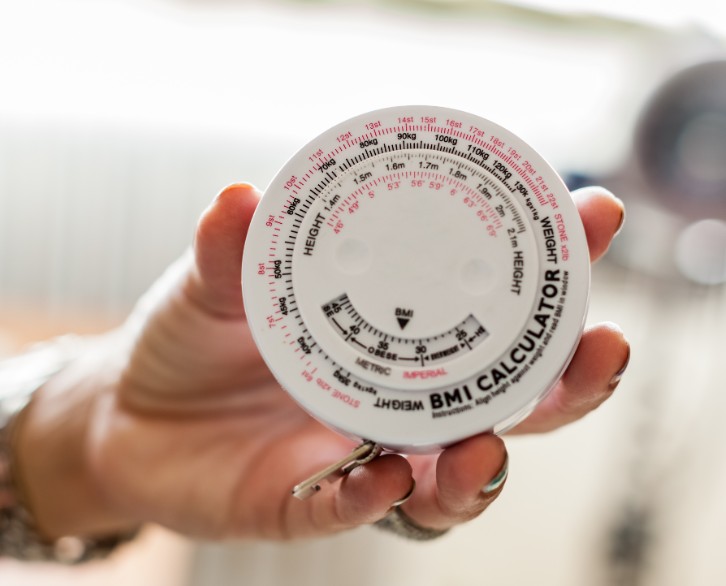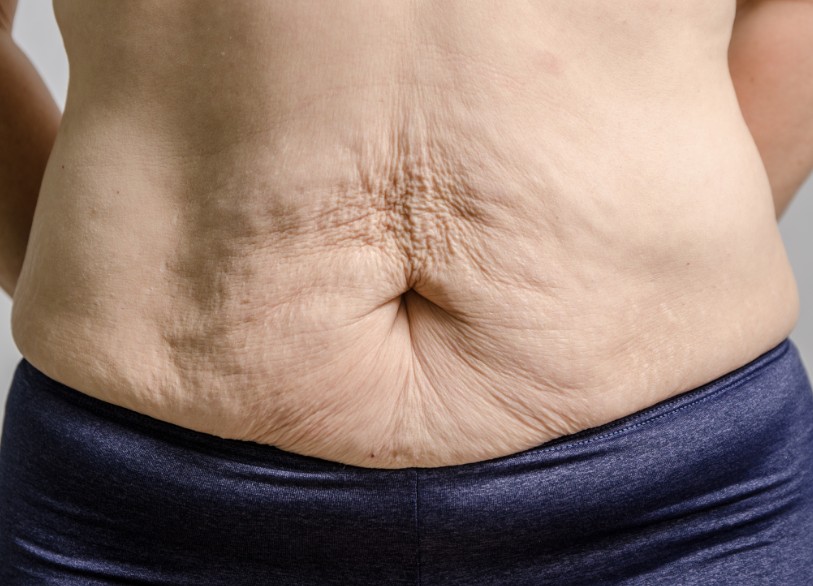
BMI is a calculation that assigns a number based on your height and weight. You can calculate yours here.
People who have a BMI under 18.5 are classified as underweight; 18.5 to 24.9 as normal weight; 25 to 29.9 as overweight; 30 or over as obese; and 40 or over as severely obese. BMI is one of the factors that bariatric surgeons have used for many years to determine which patients are the best candidates for weight loss surgery. But the numbers involved are changing as doctors and scientists learn more about obesity and how the body reacts after bariatric surgery.
What BMI Qualifies for Weight Loss Surgery?
BMI as a criterion for bariatric surgery is seen as an important indicator of morbidity and mortality. In other words, the higher the BMI, the more probability that disease will develop or life expectancy will be lowered. Further distinctions within the BMI range include:
- 30 to 34.9 – Class 1 (low-risk) obesity
- 35 to 39.9 – Class 2 (moderate-risk) obesity
- Over 40 – Class 3 (high-risk) obesity
Patients with a BMI over 40 — typically 100 pounds overweight for an average adult — have the highest risk of morbidity and mortality, and are categorized as having clinically severe obesity. The earliest guidelines for using BMI as an indicator called for only performing surgery on patients with a BMI over 40, or those with a BMI over 35 if there were accompanying weight-related medical problems, such as cardiomyopathy or diabetes.
Patients with a BMI between 30 and 35 were accepted only if there were obesity-caused physical problems, such as those interfering with a person’s ability to walk or work. Otherwise, patients with Class 1 obesity were usually counseled to try other, non-surgical weight loss options.
Can You Get Weight Loss Surgery with a BMI of 30?
The development of new surgical procedures and improvements in technology have lowered the risks of bariatric surgery, making it safer overall. The evolution from open surgery to laparoscopic surgery alone has made a significant change in this arena. In 2012, the American Society for Metabolic and Bariatric Surgery, in balancing the risks of obesity with the risks of bariatric surgery, revised its statement in light of expert opinion and published, peer-reviewed research studies.
These are now the general recommendations for patients with Class 1 obesity who are considering weight loss surgery:
- BMI at 40: Patients qualify for bariatric surgery with a BMI of 40 or if they are 100 pounds overweight.
- BMI between 35-40: Patients qualify with a BMI over 35 if they have at least one or more obesity-related conditions, such as Type 2 diabetes, high blood pressure, sleep apnea, heart disease, gastrointestinal disorders, non-alcoholic fatty liver disease, osteoarthritis or lipid abnormalities.
- BMI between 30-35: Patients qualify with a BMI of 30-35 if they have not been able to “achieve substantial and durable weight and comorbidity improvement with non-surgical methods,” according to the ASMBS.
One study presented in the Journal of the American Medical Association included more than 27,000 adults in 38 bariatric surgery programs and focused on the ability of post-surgical patients to reach a healthy BMI – under 30 – in the first year after their surgery. They found a significant indicator of success to be a starting BMI of less than 40.
The research took into consideration several randomized, controlled trials, and three studies included patients whose BMI was as low as 25.
Best Weight Loss Surgery for Low BMI
The ASMBS suggests that the types of bariatric surgery most successful in patients with a BMI between 30 and 35 are gastric bypass, sleeve gastrectomy and gastric banding. One five-year study of 541 patients who had laparoscopic sleeve gastrectomy with BMIs between 30 and 35 achieved excellent outcomes.
Another study where some patients had laparoscopic gastric bypass and others had laparoscopic sleeve gastrectomy showed reduction in BMI after surgery, and remission and improvement in medical conditions for both.
And a research study on Class 1 “mildly obese” patients who had Type 2 diabetes found that 88% of them experienced a remission in their diabetes, with no mortality or major surgical morbidity. Patients with high blood pressure also improved, representing a 50-84% reduction in the estimated 10-year risk of fatal or nonfatal coronary heart disease and stroke.
As Your Doctor Whether You Qualify for Bariatric Surgery
BMI is a critical indicator of which patients have historically been accepted for bariatric surgery procedures, but the guidelines are changing. Today, there is evidence that some patients will benefit from bariatric surgery even if their BMI falls between 30-35.
Every individual is different, your surgeon is the best person to help evaluate your best chance of success for weight loss, and to help you decide which procedure will be the most effective in your specific case. If you’d like to learn more, call Soma Weight Loss at (855) 766-2411 or click here to request more information or a consultation.




